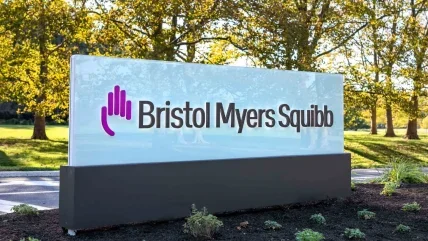
Bristol Myers Squibb is facing a renewed $6.7bn lawsuit over delayed drug approvals in the US, allegedly avoiding payouts to Celgene shareholders.
The lawsuit claims Bristol Myers Squibb cheated former Celgene shareholders by delaying federal approval for three drugs, including the cancer treatment Breyanzi.
It accuses Bristol Myers Squibb of depriving shareholders of contingent value rights (CVR) worth an extra $9 per share in cash by missing key approval deadlines. The suit alleges these delays were intended to avoid a large payout, according to Reuters.
This legal action comes after a previous version of the case was dismissed by a federal judge in late September.
Bristol Myers Squibb won the $6.4bn case in which the former Celgene shareholders alleged that the former delayed approval for Celgene’s cancer drugs, Breyanzi, Ozanimod and Ide-cel.
On 30 September, the US District Judge Jesse Furman ruled that UMB Bank was not properly appointed as trustee for CVR holders, leading to the dismissal of its earlier lawsuit.
The judge called the failure a key factor in invalidating UMB’s case, which was filed 17 months after Bristol Myers Squibb’s $80.3bn acquisition of Celgene.
In that ruling, Furman said: “After three years of litigation and with so much money at stake, the court does not reach that conclusion lightly. UMB has no one to blame for that result but itself.”
In its latest complaint, UMB Bank stated it has addressed the judge’s concerns and been confirmed as trustee, allowing it to proceed with the lawsuit.
Bristol Myers Squibb’s estimated liability has risen to $6.7bn, up from the $6.4bn mentioned in earlier court filings.
The drugmaker received US Food and Drug Administration (FDA) approval for Breyanzi, originally developed by Celgene, to treat non-Hodgkin’s lymphoma. The approval came in February 2021, five weeks past the deadline set for CVR holders.
UMB Bank first filed the lawsuit in June 2021 claiming that the New York-based pharmaceutical giant delayed the development of a cancer drug to avoid milestone payments.
In a separate development, Eli Lilly sued the federal Health Resources and Services Administration (HRSA), claiming that the agency blocked its plan to change how it offers drug discounts to hospitals.
The case revolves around the federal 340B programme, which requires drugmakers to offer discounts to healthcare providers serving low-income populations.






